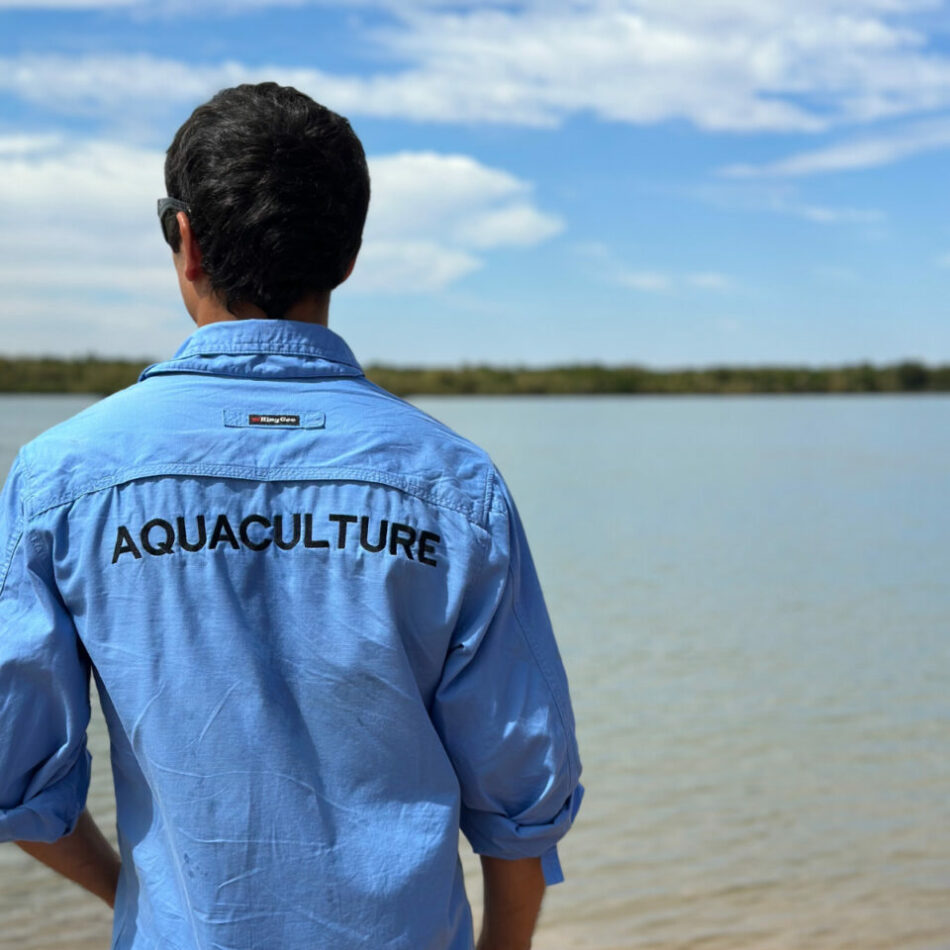Leading Australian aquaculture researchers will team up with key industry players to deliver a vision for a commercially viable aquaculture industry across northern Australia, in the latest Cooperative Research Centre for Developing Northern Australia (CRCNA) project announced today.
Minister for Resources and Northern Australia Senator Matt Canavan marked the start of the 12-month, $420,000 industry situational analysis study alongside project participants at the CRCNA’s head office in Townsville.
Researchers and aquaculture experts from James Cook University (JCU), CSIRO, Blueshift Consulting, Australian Barramundi Farmers Association (ABFA), Australian Prawn Farmers Association (APFA) and the Indigenous Land and Sea Corporation (ILSC) will together identify the challenges and opportunities facing the northern Australian aquaculture sector and deliver a long-term northern Aquaculture Industry Vision.
JCU Professor Dean Jerry said the situational analysis will look across the aquaculture supply chain in Queensland, the Northern Territory and Western Australian and examine the industry’s current infrastructure, biosecurity threats and protocols, animal health management and investment landscape and identify possible gaps or further research needs in the sector.
“This study will be the impetus for the industry to come together, share information and develop a collective vision for the sustainable development of aquaculture in northern Australia,” he said.
CRCNA Chair Sheriden Morris said the project has been structured to ensure as many industry stakeholders as possible will benefit from the study’s outcomes.
“Collaboration is a critical success factor for any project and this situational analysis will see representatives from indigenous groups, aquaculture farmers, industry organisations, government agencies and university researchers cooperating to deliver a meaningful summation of key areas for future investment and R & D planning.”
Robert Bell and Roger Barnard from commercial aquaculture advisors Blueshift Consulting said there is an increasing appetite from institutional and private equity for investment in aquaculture in northern Australia, but the industry needs a plan to ensure investment is being made in commercially viable projects.
“The key to success will be matching the right species, systems, critical-scale infrastructure and market accessibility with the right investors, financial structures and terms and that government policy and facilitation, R&D, aquaculture operators, investors, and local communities are all aligned with northern Australia’s natural and strategic advantages,” Mr Bell said.
“Understanding what has and has not worked commercially across these areas in the past, will be crucial to ensuring the success of a northern Australian aquaculture industry.”
The project will also leverage CSIRO’s broad knowledge of tropical aquaculture industries and research opportunities, to overcome barriers to development for creating a northern aquaculture industry vision.
The CRCNA’s northern Australia aquaculture situational analysis project is one of eight industry situational analyses funded by the CRCNA in 2017/18. Other industries the CRCNA will examine as part of its commitment to informing broader discussions on further policy, investment, R & D for Ministerial Forum consideration include the rice, forestry, cropping, horticulture, bush foods, beef, health and infrastructure and communication sectors.
Media enquiries
CRCNA Communications Manager
Carla Keith
0499 330 051


